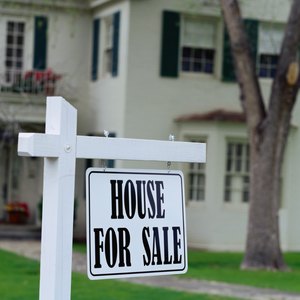
The U.S. Department of Housing and Urban Development (HUD) provides a number of options for home buyers in search of affordable housing that they intend to occupy. Once potential buyers meet certain principle residence eligibility requirements, including length of time they intend to live in the home, they may become owner-occupants. Selling an owner-occupied HUD home requires certain limitations you will have to meet regarding residency and the length of time you occupied the home, otherwise legal action may be taken for breach of contract.
Eligibility for Principle Residence
Applicants who wish to purchase a HUD home must meet eligibility requirements which prove that the property will be owner-occupied for the majority of the calendar year. The FHA requires that at least one borrower sign a security instrument and mortgage note stating their intent to occupy the property within a period of 60 days from closing. The borrower must continue to reside at the property for at least one year from the time in which they establish occupancy. Selling the home prior to meeting the one year occupancy period may be considered fraudulent and could lead to serious penalties.
Selling an Owner-Occupied HUD Home
Owner-occupants who wish to sell their HUD homes must first have lived in the property for a period of at least 12 months in order to avoid legal implications for breach of contract. Once the mandatory occupancy period has been met, a HUD home can be sold just like any other home. It is important to maintain residency in the home for the initial period of one year in order to avoid potential legal troubles.
Exceptions to Owner-Occupancy Period
The HUD owner-occupancy agreement states that the homeowner “intends to occupy the home for at least 12 months.” This means that there is a good faith commitment to reside in the home for that time period. HUD does not make it a point to openly address exceptions to the owner-occupancy period. Owners who have extenuating circumstances that require the accelerated sale of the home may contact their HUD loan holder directly to discuss possible solutions, such as loan modification, which may help them to forgo legal implications that would otherwise result from the early sale of the home.
Consequences of Early Sale
Very strict policies are in place to prevent owner-occupants from purchasing a HUD home with the intent to sell prior to 12 months. Selling an owner-occupied HUD home for a profit less than one year after the home was purchased could result in a fine of up to $250,000 and possible jail time. Real estate brokers who willingly make false disclosures to assist investors in declaring owner-occupancy for the purchase of a HUD home that is later sold may also face steep legal penalties.
References
Resources
Writer Bio
Mary Lamphere writes travel, real estate, wellness, health and business content for a variety of online portals. Her work has been featured by a number professional websites since she started writing in 2005. Lamphere holds a Bachelor's degree in business management and is an experienced author, content manager and editor.

